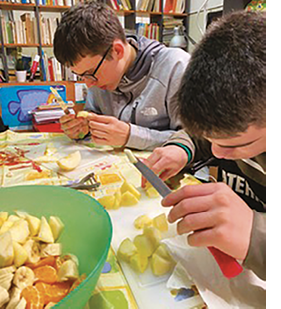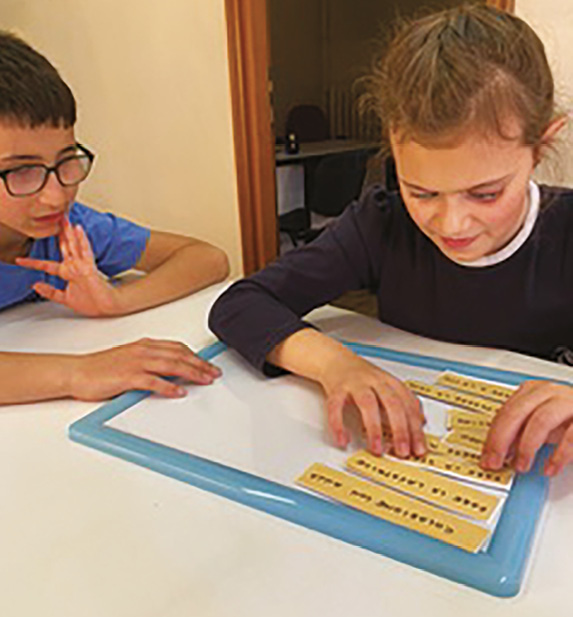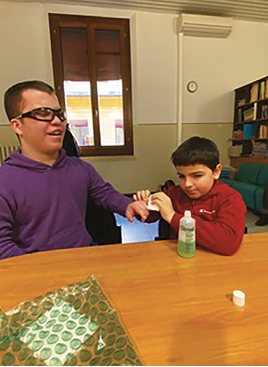The Autonomy Weekends organized by Cavazza Institute’s Educational Consulting Service from November 2023 to May 2024 promoted various types of autonomy (personal, domestic, relational) in 2 groups of visually-impaired children (aged 7-11) and teens (aged 12-18) in a stimulating and recreational setting.
So that exercises in autonomy aren’t limited to a mere other-directed act, we believe it essential to create opportunities and situations in which children and teens are personally active and involved. Therefore, among the many games proposed, we designed and built two Escape Rooms (one for each group) as play environments in which the young participants were engaged in tests of abilities regarding already-acquired or new autonomies.

These included: organizing and packing a suitcase, folding clothes and sheets, setting the table, pouring liquids, peeling and cutting fruit for a fruit salad, reordering time sequences or steps of a recipe, treating a wound, passing tests of dexterity (such putting a Russian doll back together), tackling logic and problem-solving tests, simulating the purchase of a birthday gift and, last but not least, opening a locked door! The participants in this stimulating adventure enthusiastically faced their challenges as well as their difficulties with determination, and never gave up. The 8 participants each weekend were divided into 2 teams of 4, each with 2 operators, and took part in a non-competitive, collaborative game in which one of their goals was to actively organize themselves and divide their tasks to achieve the final result.

Each one contributed to the shared activity with their abilities, and many had new, first-hand experiences. Each child or teen applied their strengths but also considered their weaknesses, beginning to learn how to know when they need help and how to ask for it.
Working all together in a group was a stimulating and essential encouragement, beyond the logic of individual rehabilitation: each participant felt that their individual actions had added value because they benefited everyone.
In this sense, the Autonomy Weekends link individual learning of autonomies with understanding of their profound importance for social participation.

It’s much more satisfying and stimulating to become self-sufficient if it happens for and with others!

.jpg)



.png)